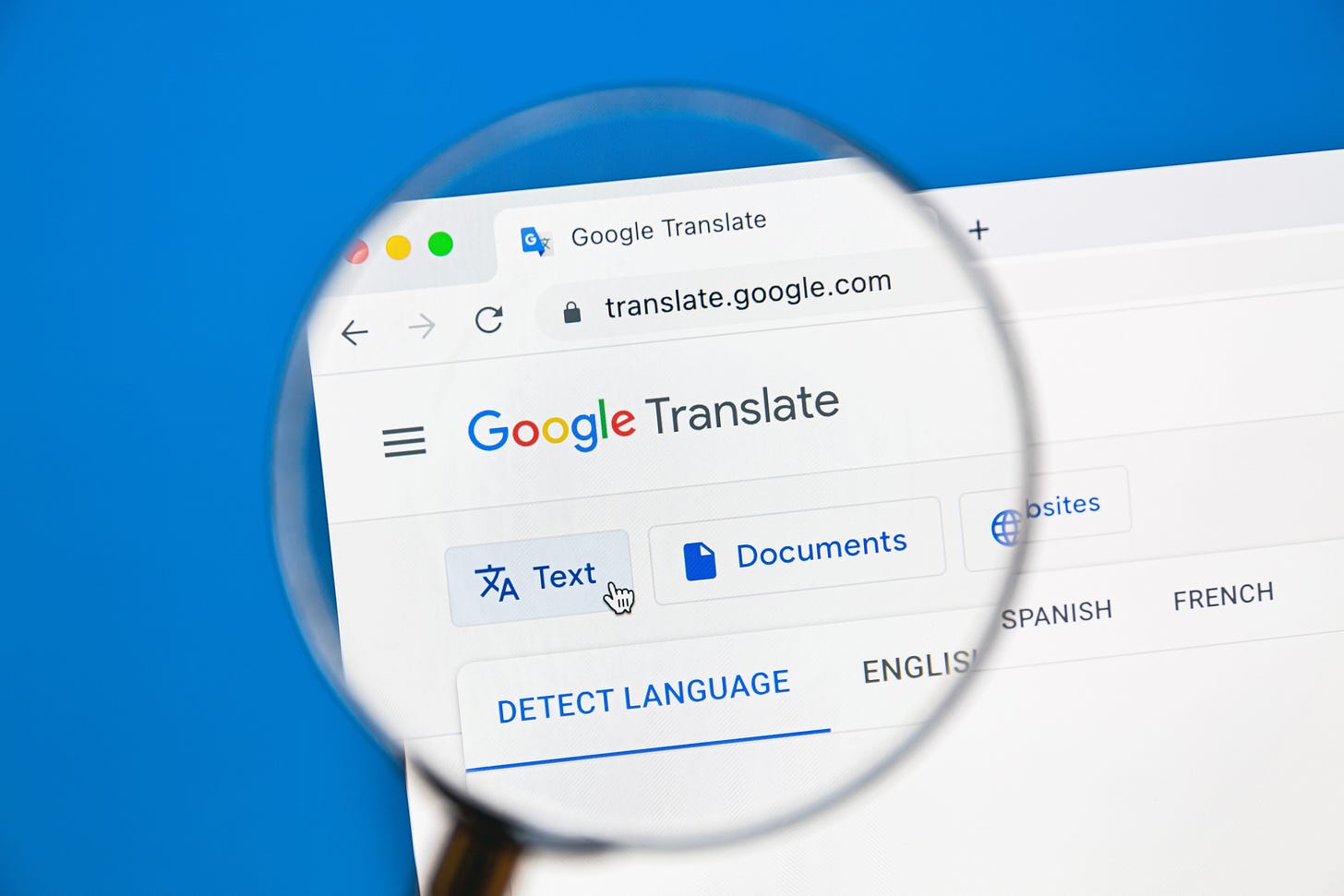The Universal Language - 18
Should there be a quest for the original tongue of Eden?
One last thought on language. I respect people who can speak and read and write in more than one language. To me learning a different language seems daunting.
There are books I’d like to read (mostly theological ones) that have never been translated into English. I have hit God’s roadblock with German, French, Latin, and Dutch writers. I have to accept that God is glorified when He sets limits.
One such work is titled: ROEPING EN BEROEP BIJ CALVIJN DOOR W.J. AALDERS. It was written by W.J. Aalders. The work is an analysis of John Calvin’s view of the concept of Calling. Aalders wrote in Dutch, but He quotes Calvin in French, and other theologians in German and Latin. Yikes!
I tried to hire a Dutch man to translate the book for me. He directed me to Google Translate, an incredible program that is doing wonders to bridge the gap between languages. I translated it - each language of it.
When I was finished, the translation helped me to read the book, but it was quite clumsy. There were words that I couldn’t quite make sense of and the sentence structure was not “normal.”
There are other online tools attempting to translate too: DeepL, Reverso, Bablic, to name a few. I tried DeepL for a while. I paid a subscription but eventually went back to Google Translate. A good friend suggested DeepL. He uses it in his efforts to learn to speak Spanish.
Will God restore to man a universal language? Perhaps, if the motivation is upright.
Umberto Eco wrote a book called, The Search for the Perfect Language. The book explores and catalogs men’s pursuit of unified speech. What would such a language look like? Could there be an international language? Would people all speak the original language?
Eco cited a curious historical text written by Salimbene da Parma, Cronaca, 1664:
[Frederick II] wanted to discover which language and idiom children would use, on reaching adolescence, if they had never had the opportunity to speak to anyone. So he gave orders to the wet nurses and to the feeders to give the infants milk, prohibiting their talking to them. He wanted to find out whether the children would speak Hebrew, which was the first language, or else Greek or Latin or Arabic, or indeed if they did not always speak the language of their natural parents. But the experiment came to nothing, because all the babies or infants died.1
That is troubling. I imagine the children died being starved for affection.
The prophet Isaiah spoke of a future time when five cities of Egypt would speak the language of Canaan (Hebrew):
“In that day there will be five cities in the land of Egypt that speak the language of Canaan and swear allegiance to the LORD of hosts. One of these will be called the City of Destruction.”2
Theologian Martin Selbrede suggests these particular Egyptians will (would) literally work to learn the Hebrew language so as to better understand the Law of God to whom they’ve sworn allegiance.3 (This is similar to my motivation for trying to translate Aalders’s work.)
And the prophet Zephaniah writes, “For at that time I will change the speech of the peoples to a pure speech, that all of them may call upon the name of the LORD and serve him with one accord.”
Most commentators view this as figurative speech, not literal. They do not think this has to do with a universal tongue, but with a universal motivation to call upon the LORD. That it will be a time when all peoples want what God wants. The stress of the verse is “with one accord.” Pure speech is not sharing the same tongue but speaking from as a united people of God. What a contrast that would be to when men literally shared a universal language, but used the gift to build a tower in tribute to MAN.
In any case, though our tongues remain an impediment to communication and keep us separate on certain fronts, still the Gospel of God’s Son teaches us that the brotherhood and sisterhood of the family of God glues us together into one man.4
Eco, Umberto, The Search For The Perfect Language, Blackwell Publishers Limited: Oxford and Cambridge USA, 1995.
Isaiah 19:18
Selbrede wrote an article for Chalcedon Foundation’s Arise and Build. The article is called, “A Stone Cut Without Hands.” He mentions Isaiah 19:18, and the relevance of the Egyptians learning Hebrew, in a subsequent podcast produced upon the article. The podcast can be found here: https://podcasts.apple.com/us/podcast/the-chalcedon-podcast/id1504004414
1 Corinthians 12:12-13; Ephesians 1:22-23; Romans 12:3-5.


